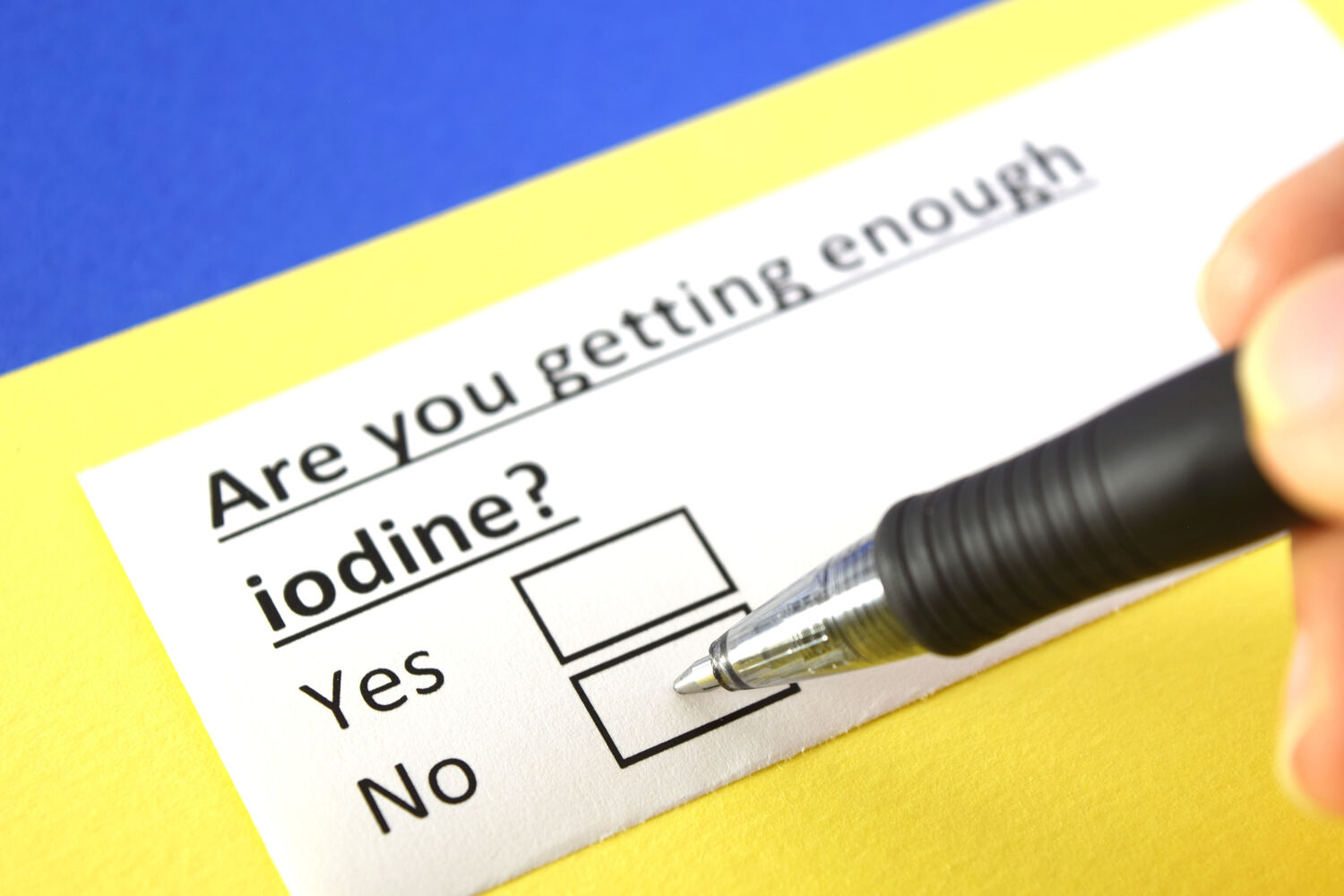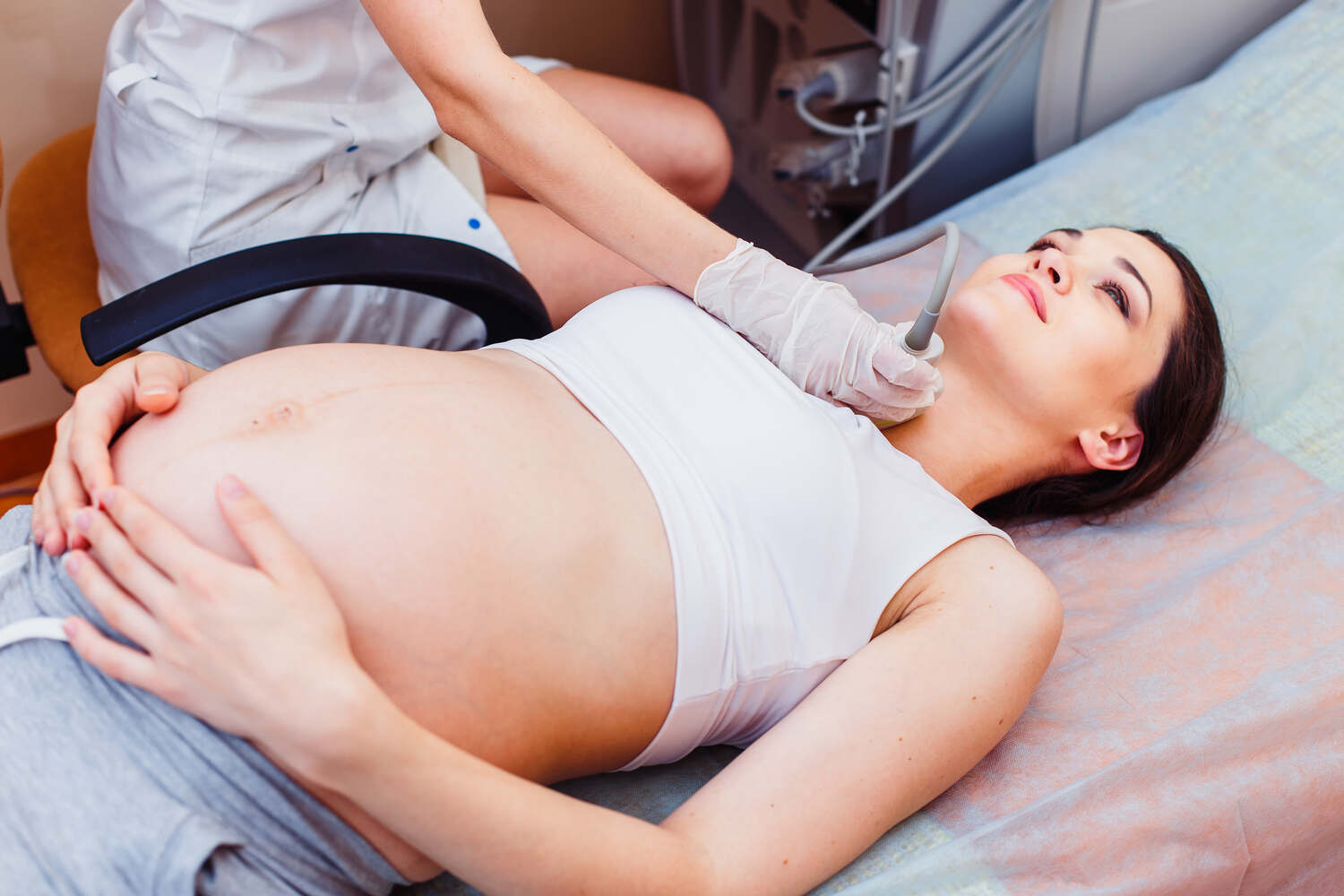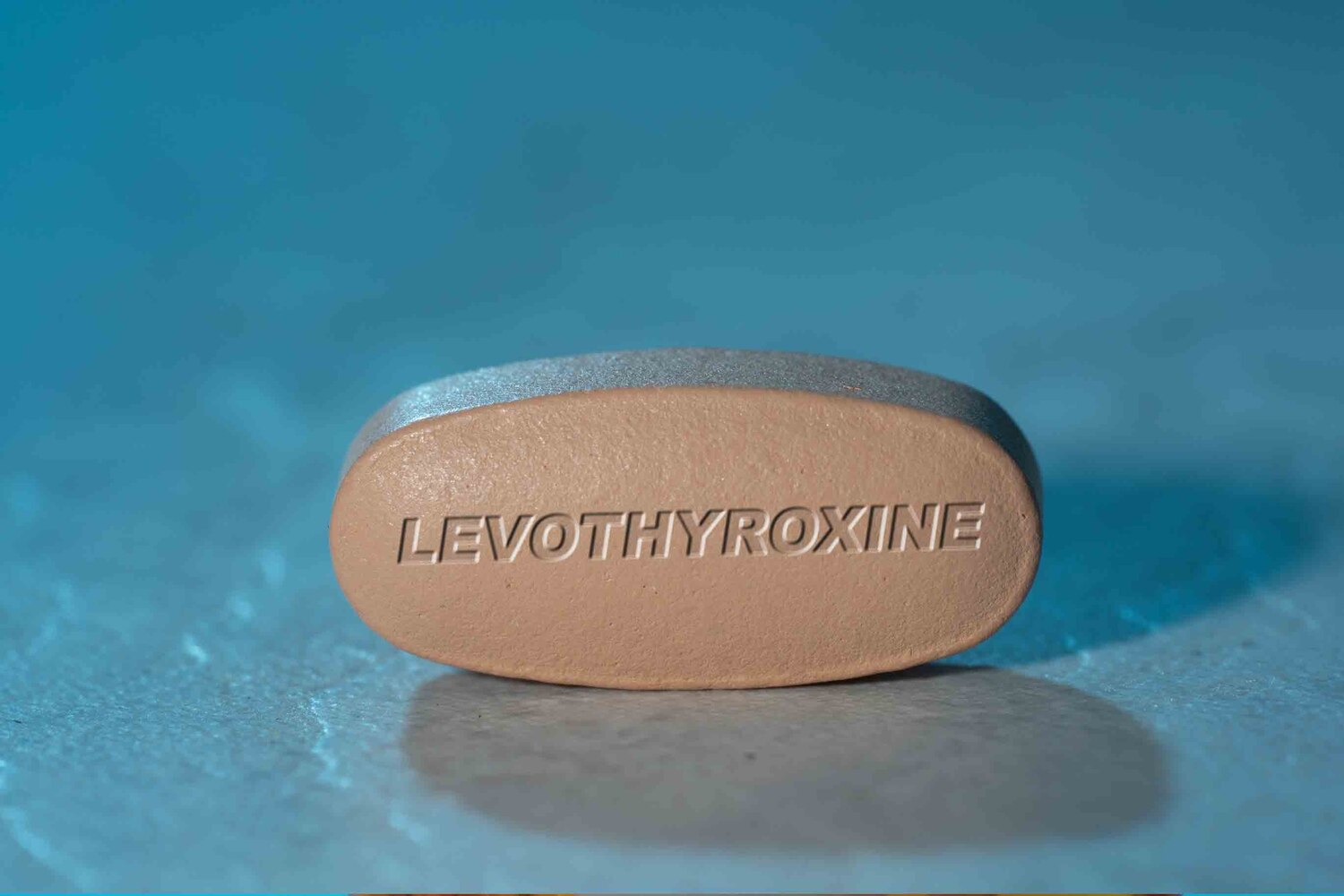 Pregnancy is definitely like a roller coaster ride with moments of joy and a few bumps here and there. There can be a lot of challenges a woman faces during her pregnancy. Hormonal changes are one such problem. As soon as you conceive, the hormonal levels start to change. The thyroid gland also begins to grow in size leading to abnormal levels of thyroid hormones in the blood.
Pregnancy is definitely like a roller coaster ride with moments of joy and a few bumps here and there. There can be a lot of challenges a woman faces during her pregnancy. Hormonal changes are one such problem. As soon as you conceive, the hormonal levels start to change. The thyroid gland also begins to grow in size leading to abnormal levels of thyroid hormones in the blood.
There can be a deficiency of thyroid hormone causing hypothyroidism in pregnancy or there can be an excess of this hormone causing hyperthyroidism. Optimal levels of this hormone are a must to make sure that your baby is healthy and intelligent.
In This Article
- What Is Thyroid?
- What Is Hypothyroidism?
- Symptoms Of Hypothyroidism In Pregnancy?
- What Causes Hypothyroidism In Pregnancy?
- Risks Of Hypothyroidism In Pregnancy
- How Is Hypothyroidism Diagnosed In Pregnancy?
- What’s The Difference Between Hypothyroidism And Hyperthyroidism?
- Treatment For Hypothyroidism During Pregnancy
- Precautions To Take For Hypothyroidism In Pregnancy
- FAQ’s
What Is Thyroid?
The thyroid is a small butterfly-shaped gland located in the anterior part of the neck just under the skin. It is a very important gland of the endocrine system that controls the body’s metabolism by producing and secreting various hormones. It regulates the way the body uses its energy. The thyroid gland produces two main hormones- T3 or Triiodothyronine and T4 or Thyroxine. Any alteration in the levels of these hormones can result in various complications. Diseases resulting from the alteration in the function and anatomy of this gland are the most common endocrine disorders in human beings. [1]
What Is Hypothyroidism?
 Hypothyroidism is a very common endocrine disorder. It means that the thyroid gland is underactive. This results in insufficient production and release of thyroid hormones into the bloodstream. This too little thyroid hormone can lead to an array of abnormal systems and slowing of the body’s metabolism.
Hypothyroidism is a very common endocrine disorder. It means that the thyroid gland is underactive. This results in insufficient production and release of thyroid hormones into the bloodstream. This too little thyroid hormone can lead to an array of abnormal systems and slowing of the body’s metabolism.
Symptoms Of Hypothyroidism In Pregnancy?
The occurrence of hypothyroidism in pregnancy is pretty common. Women who had hypothyroidism before pregnancy or those with a family history of thyroid disorders are prone to develop this condition during pregnancy. Many times, the symptoms are mild which often go unnoticed. Most of the pregnant women remain asymptomatic. [2]The symptoms of this condition during pregnancy include:
- Extreme fatigue or feeling tired all the time.
- Weight gain.
- Constipation
- Skin and hair changes. Dry skin is quite common.
- Slowing of the heart rate.
- Muscle cramps and general body aches.
- Feeling cold most of the time.
- Difficulty in concentrating along with loss of memory.
- Mood swings and in many cases, depression.
- Swelling of the face, hands, and feet.
Many times, clinicians confuse these symptoms with the normal symptoms of pregnancy like fatigue and weight gain.
What Causes Hypothyroidism In Pregnancy?
 Hypothyroidism in pregnancy mostly results due to an autoimmune condition called Hashimoto’s disease or Hashimoto’s thyroiditis. In this disease, the body starts producing antibodies against the thyroid gland. These antibodies start attacking the thyroid. This damage to the gland prevents it from producing enough hormones. During pregnancy, this process accelerates due to an increase in the need of thyroid hormones.
Hypothyroidism in pregnancy mostly results due to an autoimmune condition called Hashimoto’s disease or Hashimoto’s thyroiditis. In this disease, the body starts producing antibodies against the thyroid gland. These antibodies start attacking the thyroid. This damage to the gland prevents it from producing enough hormones. During pregnancy, this process accelerates due to an increase in the need of thyroid hormones.
However, iodine deficiency remains the most common cause of hypothyroidism in the world.[3] So, it is important to make sure that you are taking enough iodine in your diet during pregnancy.
Risks Of Hypothyroidism In Pregnancy
Without proper treatment, hypothyroidism can complicate pregnancy. Some of the risks associated with low thyroid levels during pregnancy are:
- Abortions and recurrent miscarriages are common in women with severe hypothyroidism. [4]
- Low birth weight baby
- Preeclampsia
- Premature birth
- Gestational hypertension
- Anemia as thyroid hormones play a role in the production of red blood cell colonies. [5]
- Stillbirth
How Is Hypothyroidism Diagnosed In Pregnancy?
 Due to milder symptoms of hypothyroidism and similarities with those of normal pregnancy, it becomes quite difficult for clinicians to diagnose. It can be clinically challenging. For that, blood tests are usually conducted. There are blood tests available that can measure thyroid hormone levels and TSH levels. Hypothyroidism is suspected when the TSH levels are high and T4 levels are below normal. If the doctor suspects Hashimoto’s disease then, a blood test is necessary to detect certain antibodies.
Due to milder symptoms of hypothyroidism and similarities with those of normal pregnancy, it becomes quite difficult for clinicians to diagnose. It can be clinically challenging. For that, blood tests are usually conducted. There are blood tests available that can measure thyroid hormone levels and TSH levels. Hypothyroidism is suspected when the TSH levels are high and T4 levels are below normal. If the doctor suspects Hashimoto’s disease then, a blood test is necessary to detect certain antibodies.
What’s The Difference Between Hypothyroidism And Hyperthyroidism?
Both Hypothyroidism and Hyperthyroidism are thyroid disorders resulting from either too little or too much thyroid hormones. In hypothyroidism, there is a deficiency of thyroid hormones leading to a slowing in the metabolism of the body. Whereas, in hyperthyroidism, there is an excess of the thyroid hormone leading to an elevation in the metabolic rate. In hyperthyroidism, the gland becomes overactive causing symptoms like weight loss, increase in heart rate, nervousness, and heat intolerance. Hypothyroidism on the other hand means an underactive gland causing weight gain, dry skin, and cold intolerance.
Treatment For Hypothyroidism During Pregnancy
 The treatment aims at correcting the low levels of thyroxine hormone. For this, a synthetic form of this hormone called Levothyroxine is given. This drug is safe in pregnancy and is helpful for the well-being of both the mother and the baby. Usually, an endocrinologist sets the right dosage of this drug. So, serum TSH levels are very essential to decide the dose of this synthetic hormone.[5]
The treatment aims at correcting the low levels of thyroxine hormone. For this, a synthetic form of this hormone called Levothyroxine is given. This drug is safe in pregnancy and is helpful for the well-being of both the mother and the baby. Usually, an endocrinologist sets the right dosage of this drug. So, serum TSH levels are very essential to decide the dose of this synthetic hormone.[5]
In women with a previous history of hypothyroidism, a higher dosage might be needed as the body requires much more levels for the proper growth of the baby. Constant monitoring of thyroid levels in the blood every six to eight weeks is essential, if the current dose requires any adjustment. It is important to take the medicine daily on time preferably in the morning thirty minutes before breakfast.
Precautions To Take For Hypothyroidism In Pregnancy
Hypothyroidism in pregnancy should not be taken lightly as it can cause developmental defects in the baby. A few tips can help prevent certain complications. They are:
- Make sure to include a diet sufficient in iodine. Iodine deficiency is one of the most common causes of hypothyroidism. A daily intake of 150 µg is recommended by The American Thyroid Association.
- Women who have a history of hypothyroidism before conceiving must test for TSH levels in the blood as soon as the pregnancy test is positive. This will help in starting the adequate dose as soon as possible.
- Medicine must be taken daily at almost around the same time. Avoid missing any dose.
- Follow a healthy and balanced diet rich in vitamin A as it plays a role in maintaining thyroid health. Vitamin D also helps in keeping the thyroid hormone levels in check. [6]
- Avoid goitrogens like cabbage, broccoli, and kale as they affect the utilization of iodine by the gland.[7]
- Avoiding stress and getting a good sleep also help in controlling hormone levels.
So, if you are feeling very tired lately and having trouble dealing with a cold then these can be signs of hypothyroidism in pregnancy. They are symptoms of a normal pregnancy too, but it is best not to take a chance. It just needs a blood test to make sure that you and your baby are fine. Eat healthy and sleep well to make sure that you have a healthy thyroid gland.
FAQ’s
1. How Do You Treat Thyroid Problems During Pregnancy?
Thyroid issues in pregnancy can be easily taken care of. Hypothyroidism is manageable by taking a daily dose of levothyroxine. Hyperthyroidism can be treated by taking anti-thyroid medicines. It is always better to consult your doctor about it.
2. How Do You Treat Hypothyroidism Symptoms?
The best way to cure the symptoms of hypothyroidism is by replacing the deficient hormone. Levothyroxine is a daily hormone replacement therapy that helps in treating the symptoms.
3. How Does Hypothyroidism Affect The Fetus?
Hypothyroidism can have adverse effects on the fetus. Studies have shown that babies born to mothers with low thyroid levels can have a low IQ. Other risks include preterm birth, low birth weight, and even stillbirth.
4. Is Hypothyroidism a high-risk pregnancy?
Chances of conception are low in the case of hypothyroidism. Even if the woman conceives, there can be a risk of miscarriage. Other complications include premature delivery, preeclampsia, and gestational hypertension.
References
- Thyroid Gland – [https://cris.unibo.it/handle/11585/625081]
- Hypothyroidism in pregnancy – [https://journals.lww.com/indjem/fulltext/2012/16030/hypothyroidism_in_pregnancy.8.aspx]
- Hypothyroidism in pregnancy – [https://www.ncbi.nlm.nih.gov/pmc/articles/PMC3354841/]
- Pregnancy outcomes in women with severe hypothyroidism – [https://academic.oup.com/ejendo/article-abstract/169/3/313/6661690]
- Prospective evaluation of pregnant women with hypothyroidism: Implications for treatment – [https://www.tandfonline.com/doi/abs/10.1080/09513590701214646]
- Vitamin D and the Thyroid: A Critical Review of the Current Evidence – [https://www.mdpi.com/1422-0067/24/4/3586]
- Concentrations of thiocyanate and goitrin in human plasma, their precursor concentrations in brassica vegetables, and associated potential risk for hypothyroidism – [https://academic.oup.com/nutritionreviews/article/74/4/248/1807251]
